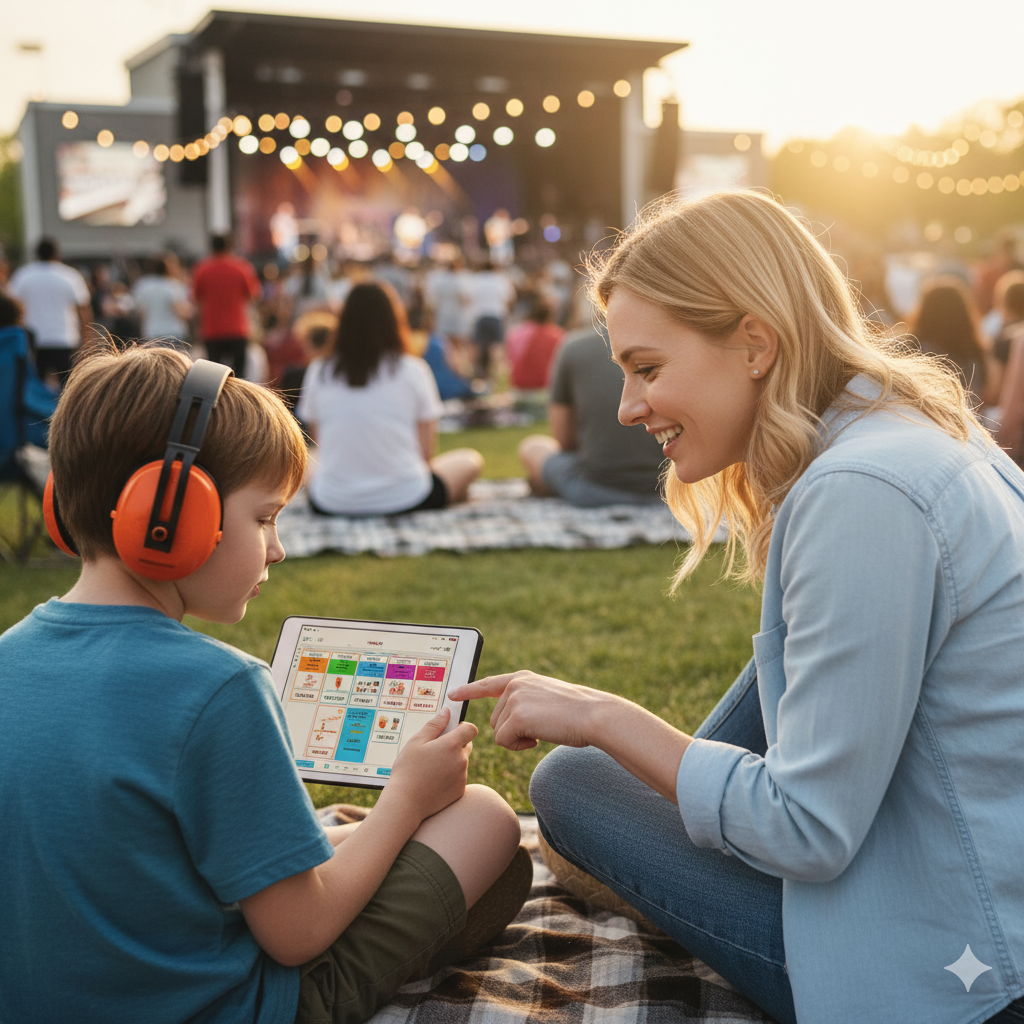Helping Your Autistic Child Navigate Spring Concert Season Without the Stress
Spring concert season—just hearing the phrase might bring on a mix of pride and panic. On the one hand, it’s a milestone moment, a chance to see your child shine on stage. On the other, if your child is autistic, these events can be overwhelming—loud music, bright lights, unfamiliar routines, and all eyes on them? That’s a lot.
If you’re already picturing meltdowns or feeling the weight of all the preparation, take a breath. You’re not alone. Many parents in the Sojorne community have walked this path, and there are ways to make it easier—for both your child and you.
Here’s how to help your school-age child manage performance anxiety and feel more confident leading up to the big show.
1. Start with the Senses
Concerts can be a sensory rollercoaster. The noise, the crowd, the scratchy outfit—it can all add up fast. Start by breaking things down:
Sound: Ask the teacher for a recording of the concert songs. Listening at home (at a comfortable volume!) can help your child feel more familiar with what to expect.
Sight: If the concert space is new, see if you can do a walk-through ahead of time—lights off, lights on, and ideally with fewer people around.
Clothing: Let your child help choose what to wear. Prioritize comfort over formality. If the outfit must meet a dress code, try a sensory-friendly version: a tagless polo, soft dress pants, or leggings under a dress.
2. Practice, Practice... but in Their Own Way
Some kids need lots of rehearsal to feel comfortable; others get overwhelmed by too much repetition. Find your child’s balance. If they’re anxious about forgetting lyrics or cues, use visual aids like picture cards or a printed script they can hold onto.
One parent shared that her son practiced standing in front of stuffed animals to simulate an audience. Another let her daughter perform in the hallway for family “guests” sitting on the stairs. It’s okay to get creative—practice doesn’t have to look like a traditional rehearsal.
3. Create a Personalized Plan for the Big Day
Here’s where your insider knowledge as a parent shines. Think through what your child needs before, during, and after the event. This might include:
A calm-down kit: Noise-reducing headphones, a favorite fidget, or a comfort item.
A visual schedule: Breaking the evening into small, manageable steps.
A designated safe space: Ask if there’s a quiet room where your child can take a break if needed.
Also, prep your child for the “unknowns.” Who might be in the audience? Will there be applause? Can they wave to you or exit early if it gets too intense?
4. Redefine “Success”
Success doesn’t always mean standing on stage and singing every note. Sometimes, success is showing up. Or making it through the first half. Or deciding to watch from the wings instead of participating—and that’s okay.
If your child doesn’t want to perform, consider roles like stage helper, greeter, or program passer. Being part of the event in a way that feels safe still builds confidence and connection.
At the end of the day, it’s not about the perfect performance—it’s about helping your child feel seen, supported, and celebrated.
💬 Have you helped your child through a spring concert or performance? What worked for you—or what didn’t? We’d love to hear your story. Drop your tips or questions in the comments. You’re not alone in this. 🌸

